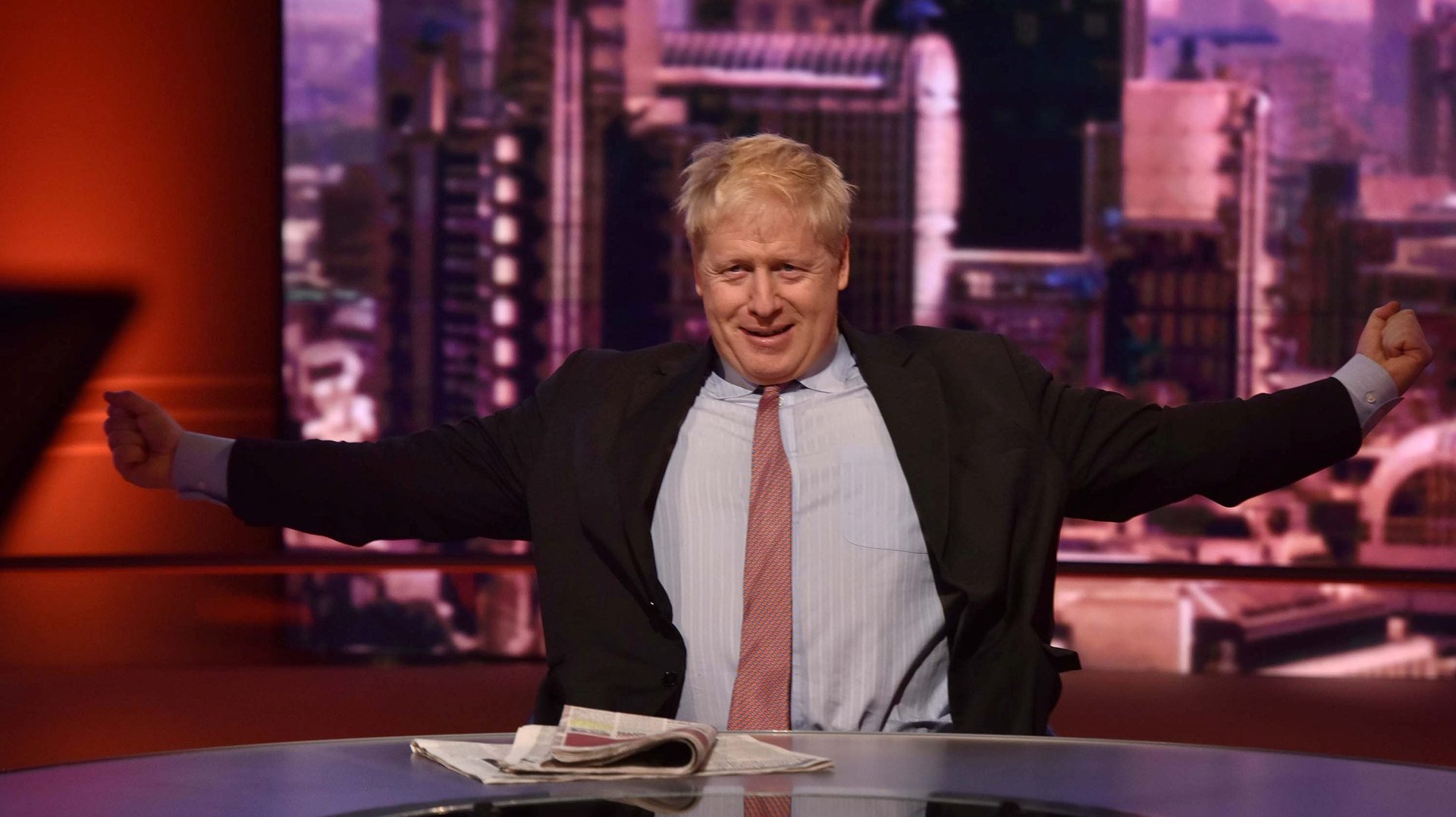Boris Johnson tried to avoid a combative BBC interview. He got one anyway
When Boris Johnson sat down for a televised interview on The Andrew Marr Show, the BBC’s flagship Sunday program, he probably thought it was going to be easy. The British prime minister had battled with the broadcaster for days in order to be featured on the program without first agreeing to be interviewed by journalist Andrew Neil—a notoriously dogged interviewer—ahead of the Dec. 12 general election. (Neil recently grilled Labour Party leader Jeremy Corbyn for refusing to apologize to British Jews over accusations of institutional anti-Semitism in his party.)


When Boris Johnson sat down for a televised interview on The Andrew Marr Show, the BBC’s flagship Sunday program, he probably thought it was going to be easy. The British prime minister had battled with the broadcaster for days in order to be featured on the program without first agreeing to be interviewed by journalist Andrew Neil—a notoriously dogged interviewer—ahead of the Dec. 12 general election. (Neil recently grilled Labour Party leader Jeremy Corbyn for refusing to apologize to British Jews over accusations of institutional anti-Semitism in his party.)
But Marr’s combative interview today (Dec. 1) was anything but easy.
For an hour, Marr grilled the prime minister about terrorism, healthcare, Islamophobia, and Brexit. He repeatedly interrupted Johnson, accusing him of not answering his questions and deflecting blame. Finally, he asked Johnson why he avoided being interviewed by Andrew Neil, to which Johnson answered, “I am perfectly happy to be interviewed by any interviewer called Andrew from the BBC.” (He did not propose a date.)
The BBC had previously refused to let Johnson go on The Andrew Marr Show until he committed to a 30-minute interview with Neil, which every other major political party leader in the UK had already agreed to. But the BBC relented after this week’s terrorist attack on London Bridge, saying in a statement, “We believe it is now in the public interest that the prime minister should be interviewed.”
Throughout the campaign, Johnson has avoided media scrutiny. He refused to take part in Channel 4’s climate change debate on Thursday, as did Brexit Party leader Nigel Farage. The network replaced both of their podiums on stage with melting ice sculptures meant to symbolize the effects of climate change. In response, the Conservative Party filed a complaint with the UK’s media regulator alleging bias and threatened to review Channel 4’s broadcasting license.
But it’s not just media appearances. Johnson has also avoided taking part in several hustings—local meetings where the candidates exchange views and answer voters’ questions—in his constituency of Uxbridge and South Ruislip, where he holds the smallest majority of any British leader since 1924. (He was foreign minister at the time of the last general election in 2017.) Johnson said he won’t attend a Dec. 5 hustings at Yiewsley Baptist Church, for example, and organizers recently told the press they may empty-chair him.